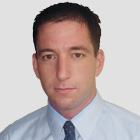(updated below)
When news first broke of the U.S. airstrike on the Doctors Without Borders hospital in Kunduz, Afghanistan, the response from the U.S. military was predictable and familiar. It was all just a big, terrible mistake, its official statement suggested: an airstrike it carried out in Kunduz "may have resulted in collateral damage to a nearby medical facility." Oops: our bad. Fog of war, errant bombs, and all that.
This obfuscation tactic is the standard one the U.S. and Israel both use whenever they blow up civilian structures and slaughter large numbers of innocent people with airstrikes. Citizens of both countries are well-trained -- like some tough, war-weary, cigar-chomping general -- to reflexively spout the phrase "collateral damage," which lets them forget about the whole thing and sleep soundly, telling themselves that these sorts of innocent little mistakes are inevitable even among the noblest and most well-intentioned war-fighters, such as their own governments. The phrase itself is beautifully technocratic: it requires no awareness of how many lives get extinguished, let alone acceptance of culpability. Just invoke that phrase and throw enough doubt on what happened in the first 48 hours and the media will quickly lose interest.
But there's something significantly different about this incident that has caused this "mistake" claim to fail. Usually, the only voices protesting or challenging the claims of the U.S. military are the foreign, non-western victims who live in the cities and villages where the bombs fall. Those are easily ignored, or dismissed as either ignorant or dishonest. Those voices barely find their way into U.S. news stories, and when they do, they are stream-rolled by the official and/or anonymous claims of the U.S. military, which are typically treated by U.S. media outlets as unassailable authority.
In this case, though, the U.S. military bombed the hospital of an organization -- Doctors Without Borders (Medecins Sans Frontià �res (MSF)) -- run by western-based physicians and other medical care professionals. They are not so easily ignored. Doctors who travel to dangerous war zones to treat injured human beings are regarded as noble and trustworthy. They're difficult to marginalize and demonize. They give compelling, articulate interviews in English to U.S. media outlets. They are heard, and listened to.
Click Here to Read Whole Article
|
Rate It | View Ratings |

OpEdNews depends upon can't survive without your help.
If you value this article and the work of OpEdNews, please either Donate or Purchase a premium membership.
If you've enjoyed this, sign up for our daily or weekly newsletter to get lots of great progressive content.
Most Popular Articles by this Author: (View All Most Popular Articles by this Author)
HSBC, too big to jail, is the new poster child for US two-tiered justice system
US investigates possible WikiLeaks leaker for "communicating with the enemy"
Prosecution of Anonymous activists highlights war for Internet control
4 quick points about the MSNBC discussion
The myth of Obama's "blunders" and "weakness"
The Remarkable, Unfathomable Ignorance of Debbie Wasserman Schultz
To View Comments or Join the Conversation:





